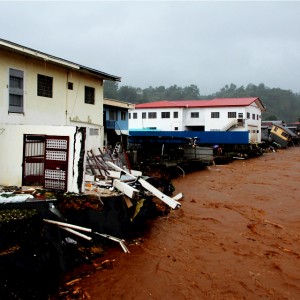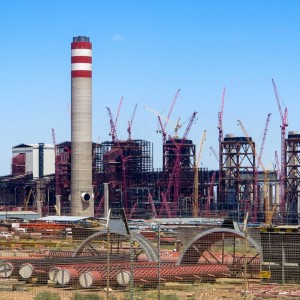The Stream, April 28: Economic Development Slows Upstream Of China’s Danjiangkou Reservoir
The Global Rundown
The expansion of China’s Danjiangkou reservoir paved the way for the South-North Water Transfer Project, but has led to economic decline in upstream regions. A drought in North Korea caused food production to drop last year, while a drought in Venezuela has forced the government to cut the public work week to two days. Vietnam is investigating a fish kill that may be linked to wastewater discharged from a steel plant. Michigan officials may have tried to cover up lead contamination in drinking water before the Flint crisis, emails reveal. Europe’s biggest urban farm opens next month, growing vegetables and fish in The Hague.
“There is no long-term plan for economic development there, because they always knew the water-transfer project was coming.” –Zhang Kelou, an accountant in Henan, China, on the economic fallout for regions upstream of the Danjiangkou reservoir, which was expanded in 2011 to provide water for the South-North Water Transfer Project. (Foreign Policy)
By The Numbers
2 days Number public employees in Venezuela will be working for each of the next two weeks, as the government tries to cut electricity usage amid a drought. Reuters
9 percent Drop in food production in North Korea in 2015 due to droughts and water scarcity, according to a report by the United Nations Food and Agriculture Organization. UN News Centre
50 metric tons Amount of vegetables Europe’s largest urban farm plans to produce annually. The farm, located in an old office building in The Hague, launches next month and will also produce fish. Guardian
Science, Studies, and Reports
A series of fish kills off the coast of Vietnam has triggered a government investigation. The findings are expected to be released later this week, but media reports have suggested that the kills could be linked to wastewater discharges from a new steel plant. Reuters
On The Radar
An email between environmental officials in Michigan in 2008 suggests that efforts to cover up lead contamination occurred well before the Flint drinking water crisis. The email appears to instruct a technician to take more water samples from a homeowner association’s private water system in order to avoid a public notice of the problem. Guardian
A news correspondent for Circle of Blue based out of Hawaii. She writes The Stream, Circle of Blue’s daily digest of international water news trends. Her interests include food security, ecology and the Great Lakes.
Contact Codi Kozacek





Leave a Reply
Want to join the discussion?Feel free to contribute!